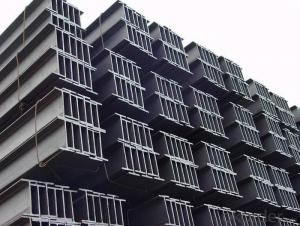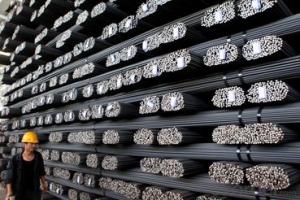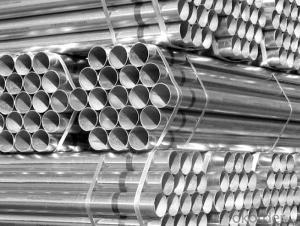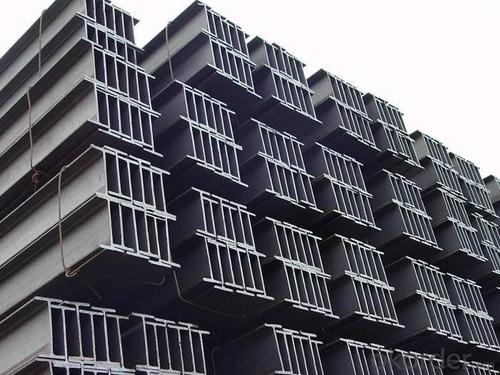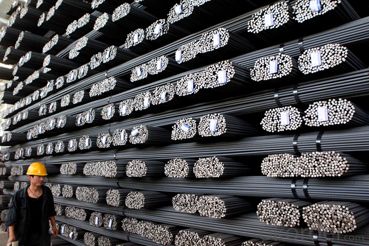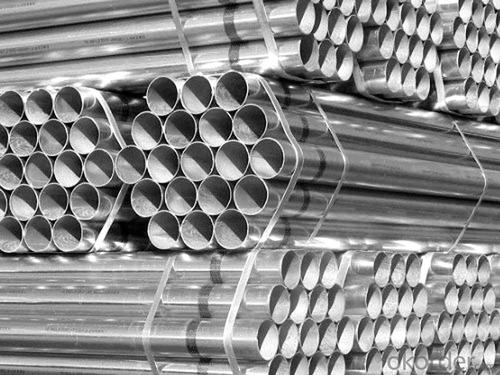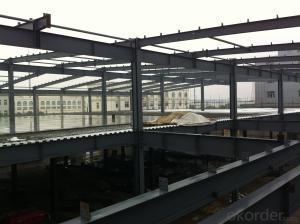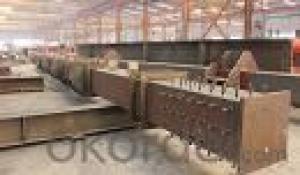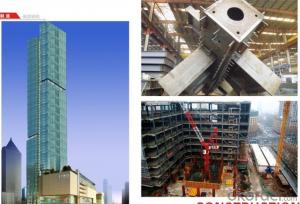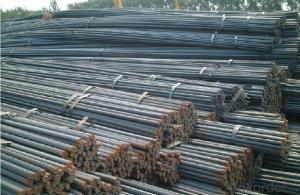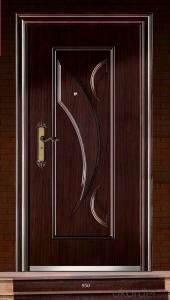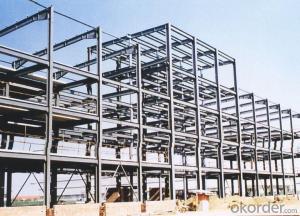Steels Manufacture Building Material with Good Quality on Sale
- Loading Port:
- Tianjin
- Payment Terms:
- TT OR LC
- Min Order Qty:
- 100 m.t
- Supply Capability:
- 1000 m.t/month
OKorder Service Pledge
OKorder Financial Service
You Might Also Like
1.Packaging & Delivery
Packaging Detail: | in bundles or as customer's requirement |
Delivery Detail: | Within 30days after receiving your deposit or copy of L/C |
2.Specifications
HRB400,HRB500 Steel Rebars
1.China direct supplier
2.Best service
3.Competitive price
4.Quantity assured
3.Product Description
Name | High Tensile Export Reinforcing Steel Bar ,Deformed Steel Bar ,HRB400B,HRB,46B,HRB500 Building Construction Material |
Standard | ASTM A615 /BS BS 4449 /GB HRB/ JIS G3112 |
Grade | A615 Gr40/60/75 BS 4449 Gr460,B500 GB HRB335,HRB400 ,HRB500
JIS G3112 SD390
|
Diameter | 6mm-40mm |
Length | 6-12m |
Technique | Low temperature hot-rolling reinforcing deformed steel rebar |
Tolerance | As the standard or as your requirement |
Application | Building, construction, road, bridge,etc |
Certificated | BV |
MOQ | 500tons per size steel rebar |
Packing details | Steel rebar packed in bundle or as your requirement |
Delivery | Within 30 days after deposit |
Payment | T/T or L/C |
4.Chemical Composition
Grade | Technical data of the original chemical composition (%) | |||||||
C | Mn | Si | S | P | V | |||
HRB400 | ≤0.25 | ≤1.60 | ≤0.80 | ≤0.045 | ≤0.045 | 0.04-0.12 | ||
Physics capability | ||||||||
Yield Strength(N/cm2) | Tensile Strength(N/cm2) | Elongation (%)
| ||||||
≥400 | ≥470 | ≥14 | ||||||
Grade | Technical data of the original chemical composition (%) | |||||||
C | Mn | Si | S | P | V | |||
HRB500 | ≤0.25 | ≤1.60 | ≤0.80 | ≤0.045 | ≤0.045 | 0.04-0.12 | ||
Physics capability | ||||||||
≥500 | ≥630 | ≥12 | ||||||
5. Theorectical weight
Diameter (MM) | Cross Sectional Area (MM2) | Theorectical Weight (KG/M) | Weight of 12M Bar (KG) | A Ton Contains 12M Bars (PCS) |
6 | 28.27 | 0.222 | 2.664 | 375.38 |
8 | 50.27 | 0.395 | 4.74 | 210.97 |
10 | 78.54 | 0.617 | 7.404 | 135.06 |
12 | 113.1 | 0.888 | 10.656 | 93.84 |
14 | 153.9 | 1.21 | 14.52 | 68.87 |
16 | 201.1 | 1.58 | 18.96 | 52.74 |
18 | 254.5 | 2 | 24 | 41.67 |
20 | 314.2 | 2.47 | 29.64 | 33.74 |
22 | 380.1 | 2.98 | 35.76 | 27.96 |
25 | 490.9 | 3.85 | 46.2 | 21.65 |
28 | 615.8 | 4.83 | 57.96 | 17.25 |
32 | 804.2 | 6.31 | 75.72 | 13.21 |
36 | 1018 | 7.99 | 98.88 | 10.43 |
40 | 1257 | 9.87 | 118.44 | 8.44 |
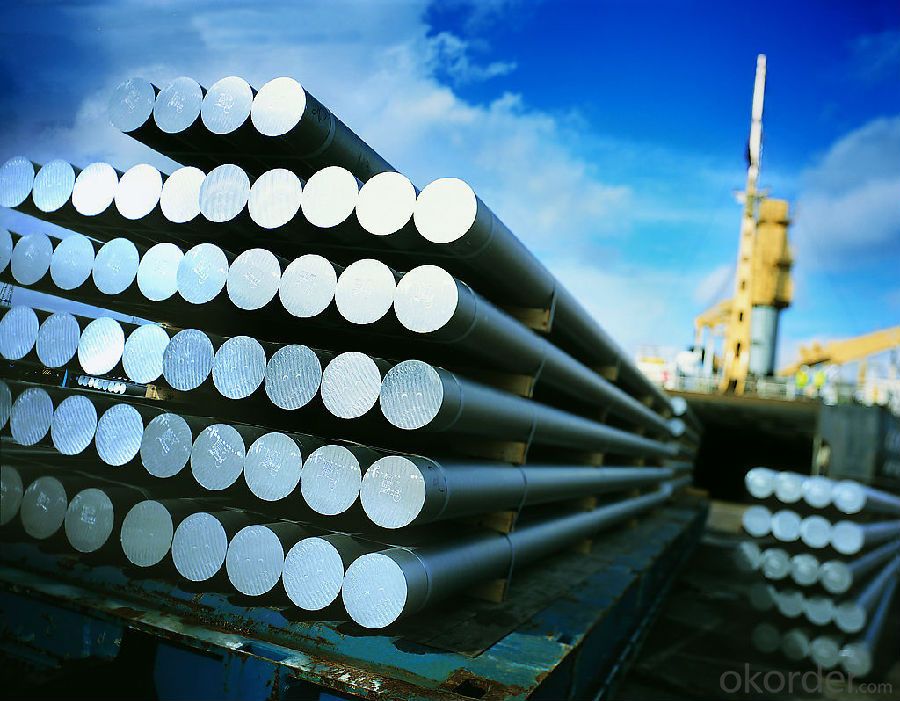
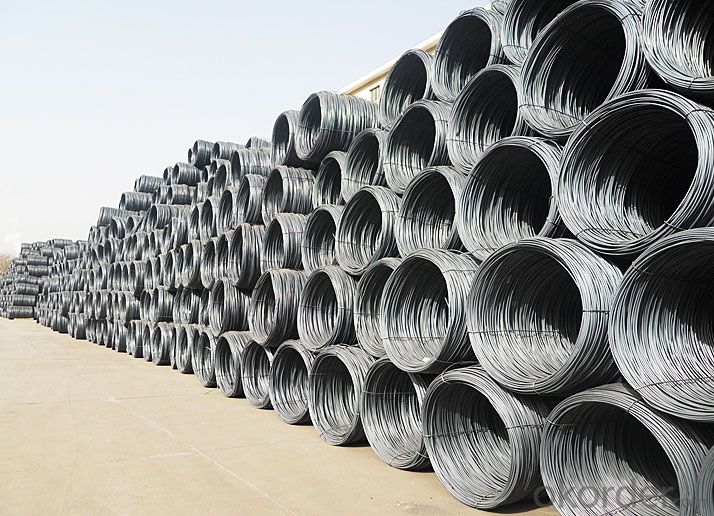
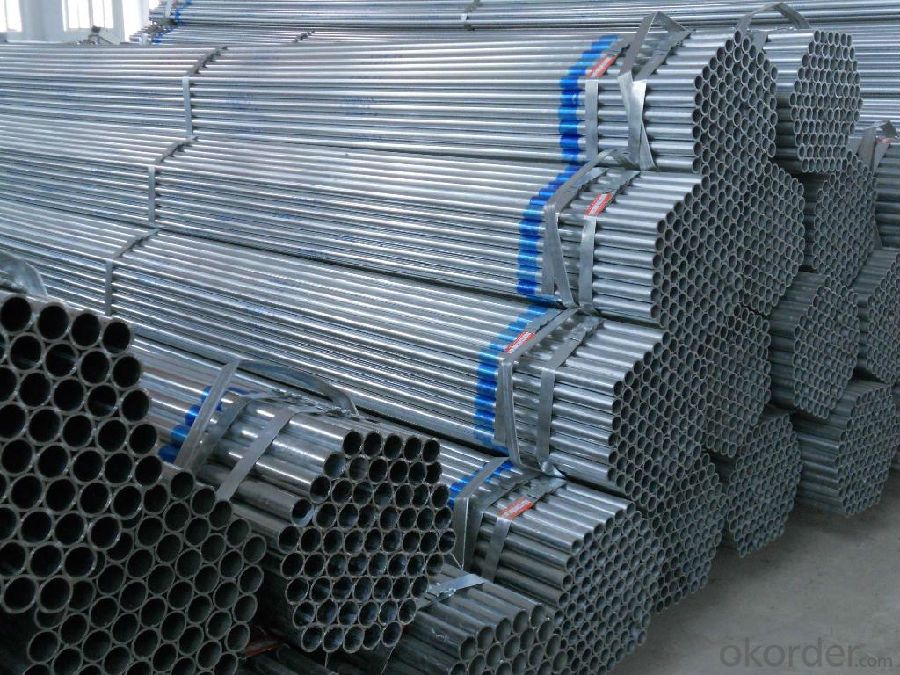
- Q: What are the advantages of using steel pipes over other materials?
- There are several advantages of using steel pipes over other materials. Firstly, steel pipes are incredibly durable and have a high tensile strength, making them resistant to extreme temperatures, pressure, and corrosion. Secondly, steel pipes have excellent structural integrity, allowing for longer spans and fewer supports. Additionally, steel pipes are highly versatile and can be easily welded, threaded, or joined, making installation and maintenance easier. Lastly, steel pipes are cost-effective in the long run as they require minimal maintenance and have a longer lifespan compared to other materials.
- Q: What are the different coatings used on steel pipes?
- There are several different coatings used on steel pipes, including but not limited to epoxy coatings, polyethylene coatings, zinc coatings, and galvanized coatings.
- Q: Can steel pipes be used for irrigation systems?
- Yes, steel pipes can be used for irrigation systems. Steel pipes are known for their durability, strength, and resistance to corrosion, making them suitable for use in irrigation systems where they may be exposed to water and various environmental conditions. Additionally, steel pipes can handle high water pressure and are available in different sizes, allowing for efficient water distribution throughout the irrigation system.
- Q: How are steel pipes used in fire protection systems?
- Steel pipes are an integral part of fire protection systems, primarily used for the distribution of water or other fire suppressants in buildings. These pipes are known for their strength, durability, and resistance to high temperatures, making them ideal for withstanding the intense conditions of a fire. In fire protection systems, steel pipes are commonly used to create a network of pipes that deliver water to sprinkler heads or fire hydrants throughout a building. This network ensures that water is readily available to suppress or extinguish a fire in case of an emergency. One of the key advantages of steel pipes in fire protection systems is their ability to withstand the high pressure and flow rates required for effective fire suppression. Steel pipes can handle the forceful water flow needed to quickly and efficiently distribute water to the affected areas, helping to control and extinguish the fire as soon as possible. Additionally, steel pipes are resistant to corrosion, which is essential for maintaining the integrity of the fire protection system over time. Corrosion can weaken pipes, leading to leaks or even complete failure, which can be catastrophic in a fire situation. Steel pipes, however, have a longer lifespan and require less maintenance compared to other pipe materials, ensuring the system remains reliable and functional for years to come. Furthermore, steel pipes are often used in fire protection systems due to their fire resistance properties. Steel is inherently fire-resistant, meaning it can withstand high temperatures without deforming or losing its structural integrity. This is crucial in fire protection systems as it allows the pipes to remain intact and continue delivering water even in the midst of a fire, ensuring the safety of occupants and minimizing damage to the building. In summary, steel pipes play a vital role in fire protection systems by ensuring a reliable and efficient distribution of water or fire suppressants. Their strength, durability, resistance to high temperatures, and corrosion resistance make them an ideal choice for effectively combating fires and safeguarding lives and property.
- Q: What are the different grades of steel used for manufacturing pipes?
- The different grades of steel used for manufacturing pipes vary depending on their intended applications. Some common grades include carbon steel, stainless steel, and alloy steel. Carbon steel is commonly used for general-purpose piping due to its affordability and strength. Stainless steel is preferred for corrosive environments or high-temperature applications due to its resistance to corrosion. Alloy steel, on the other hand, offers improved strength and durability and is often used for specialized applications such as oil and gas pipelines.
- Q: How are steel pipes used in heating systems?
- Steel pipes are commonly used in heating systems to transport hot water or steam from the boiler to various heating devices, such as radiators or baseboard heaters. The steel pipes are durable and can withstand high temperatures and pressure, ensuring efficient and safe distribution of heat throughout the building.
- Q: What are the different types of valves used with steel pipes?
- There are several types of valves commonly used with steel pipes, including ball valves, gate valves, globe valves, check valves, and butterfly valves. These valves serve different purposes and have various designs, such as quarter-turn operation for ball valves, wedge-shaped gates for gate valves, and disc-shaped elements for butterfly valves. Each type of valve offers specific advantages and is selected based on the application requirements and the flow control needs of the steel pipe system.
- Q: What are low-pressure carbon steel tubes?
- Any of various steels that contain less than 2.11% of the mass of carbon but contain no alloying elements. Sometimes referred to as plain carbon steel or carbon steel.Carbon steel, in addition to carbon, usually contains a small amount of silicon, manganese, sulfur and phosphorus.1) according to the use of carbon steel can be divided into carbon structural steel, carbon tool steel and easy to cut structural steel three categories, carbon structural steel is divided into engineering construction steel and machine manufacturing structural steel two kinds;(2) by refining methods can be divided into open hearth steel, converter steel;(3) according to deoxidization methods, they can be divided into boiling steel (F), killed steel (Z), semi killed steel (b) and special killed steel (TZ);(4) according to the carbon content of the steel can be divided into low carbon steel (WC = 0.25%), carbon steel (WC0.25% - 0.6%) and high carbon steel (WC>0.6%);(5) according to the quality of steel, carbon steel can be divided into ordinary carbon steel (phosphorus, sulfur, higher), high quality carbon steel (low phosphorus and sulfur) and high quality steel (lower phosphorus and sulfur) and super quality steel.Description: the carbon content in general carbon steel is higher, the hardness is higher, the strength is higher, but the plasticity is lower.
- Q: Are steel pipes suitable for potable water systems?
- Indeed, steel pipes prove to be an appropriate choice for potable water systems. Due to their robustness, longevity, and ability to resist corrosion, they are frequently employed in such systems. These pipes can endure substantial pressure and transport significant quantities of water. Furthermore, their versatility is evident as they can be effortlessly welded together, rendering them suitable for a wide range of applications within potable water systems. Nevertheless, it is crucial to emphasize the importance of regular inspections and adequate maintenance to avert potential problems such as rust or contamination.
- Q: How are steel pipes used in the transportation of liquids and gases?
- Due to their durability, strength, and resistance to corrosion, steel pipes find wide applications in the transportation of liquids and gases. Various industries such as oil and gas, water supply, and chemical processing commonly employ them. For the transportation of liquids, steel pipes serve as conduits for crude oil, refined petroleum products, water, and other fluids. These pipes are designed to withstand high pressure and maintain the integrity of the liquid being transported. The smooth inner surface of steel pipes minimizes friction, enabling efficient flow and reduced energy consumption. Moreover, the strength of steel pipes ensures that they can support the weight of the liquid without deformation or failure. In gas transportation, steel pipes are indispensable for the safe conveyance of natural gas, propane, and other compressed gases over long distances. These pipes are engineered to endure high pressures and extreme temperatures. They are also designed to prevent leakage, which is of utmost importance when dealing with flammable or toxic gases. The strength and durability of steel pipes make them ideal for withstanding the stress and strain that may occur during gas transportation. Additionally, steel pipes are frequently utilized in the construction of pipelines for long-distance transportation of liquids and gases. These pipelines can span hundreds or even thousands of kilometers, and steel pipes are the preferred choice due to their high strength and long-term reliability. They can bear the weight of the pipe and the substance being transported, as well as external forces such as soil pressure and temperature fluctuations. In summary, steel pipes play a vital role in the transportation of liquids and gases. Their durability, strength, and resistance to corrosion make them the preferred choice for conveying various substances over long distances. Whether it is for oil and gas, water supply, or chemical processing, steel pipes ensure the safe and efficient transportation of fluids and gases, contributing to the functioning of various industries and economies worldwide.
Send your message to us
Steels Manufacture Building Material with Good Quality on Sale
- Loading Port:
- Tianjin
- Payment Terms:
- TT OR LC
- Min Order Qty:
- 100 m.t
- Supply Capability:
- 1000 m.t/month
OKorder Service Pledge
OKorder Financial Service
Similar products
Hot products
Hot Searches
Related keywords
